October 05, 2018 | News | Big Data
Workshop: Symposium on Digital Demography

© MPIDR
The Max Planck Institute for Demographic Research (MPIDR) is organizing and hosting the first Symposium on Digital Demography (Rostock, October 17-18, 2018). This event brings together prominent scholars in Demography, Sociology, and Computational Social Sciences. It serves as a forum for discussion of the direction and latest advances in the field, as well as an opportunity to develop collaborative initiatives in research and training.
Digital Demography is an emerging field that focuses on 1) using our digital breadcrumbs and new forms of data collection made possible by digital technologies in order to measure and predict demographic change; 2) evaluating the implications of the digital revolution for demographic behavior and the well-being of people.
The symposium marks the launch of the new MPIDR Lab on Digital and Computational Demography, headed by director Emilio Zagheni.
The program (PDF File, 346 kB) is available here.
Speakers
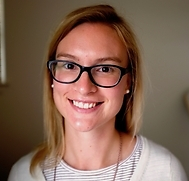
© Monica Alexander
Monica Alexander is an Assistant Professor in Statistical Sciences and Sociology at the University of Toronto. Her research focuses on developing statistical methods to help measure disparities in demographic and health outcomes. She received her PhD in Demography and Masters in Statistics from the University of California, Berkeley. She has worked on research projects with organizations such as UNICEF, the World Health Organization, and the Human Mortality Database.
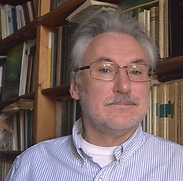
© Daniel Alexandrov
Daniel Alexandrov is Distinguished Professor of Sociology in National University - Higher School of Economics at St. Petersburg. His research group works on the sociology of education, migration studies, social networks online and offline, and computational social science. He teaches analytical sociology and social network analysis. His recent work on migration appeared in the Companion Proceedings of The Web Conference 2018.

© Privat; Population Europe.eu; Francesco C Billari
Francesco Billari is Professor of Demography and Dean of the Faculty at Bocconi University, Milan. He worked at the University of Oxford and Nuffield College (where he was a Professorial Fellow), and at the Max Planck Institute for Demographic Research (Head of the Independent Research Group on the Demography of Early Adulthood). He served as President and Secretary-General/Treasurer of the European Association for Population Studies, and received the 'Clogg Award' from the Population Association of America in 2012.
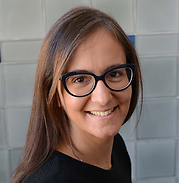
© Valeria Bordone
Valeria Bordone is Assistant Professor with the Department of Sociology at the University of Munich (LMU) and Guest Research Scholar with the Wittgenstein Centre, Vienna. She also collaborates with the Dondena Centre at Bocconi University, Milan. Her main research interests are in the area of ageing, with a focus on intergenerational relationships. Recently, she has been working on the role of digitalisation in cognitive ageing. Valeria holds a PhD in Sociology from the University of Mannheim.
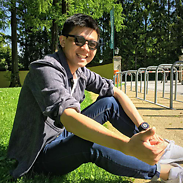
© Jixuan Cai
Jixuan Cai (Cody) is a Data Scientist based at the Map positioning team of Tencent Company. Before that, he received his MA and PhD in GIS from The Chinese University of Hong Kong. He feels excited in playing with georeferencing data to discover patterns in human distribution/migration and quantifying urban environment with residence behaviors. Currently, he is working towards high spatio-temporal and real-time population estimation in his team.

© Ciro Cattuto
Ciro Cattuto is the Scientific Director of ISI Foundation (Torino, Italy), a 35-year old non-profit research institution that pursues foundational and applied research in Data Science and Complex Systems. He founded and directs the Data Science Laboratory of ISI Foundation, where his research focuses on measuring and understanding complex phenomena in systems that entangle human behaviours and digital platforms. Dr. Cattuto is a founder and principal investigator of the SocioPatterns collaboration, a decade-long international effort on measuring and analyzing social networks with wearable sensors.
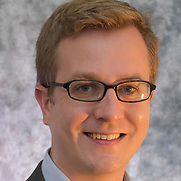
© Matthew Hall
Matthew Hall is a Demographer at the University of Washington that specializes in immigration, housing, and racial/ethnic inequality. He has contributed to research assessing the economic and social impacts of unauthorized migration, to work on the emergence of Latino boom towns and other new destination areas in the US where immigration has been recent and rapid, and to research exploring the changing nature of racial stratification and segregation in housing and neighborhoods.
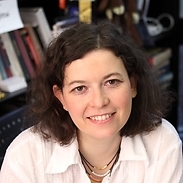
© Eszter Hargittai
Eszter Hargittai (Sociology Ph.D., Princeton) is Professor and Chair of Internet Use & Society at the U. Zurich’s Institute of Communication and Media Research. She researches how people may benefit from their Internet uses focusing on how differences in people's Web-use skills influence what they do online. She is editor of Research Confidential (U Michigan Press) and Digital Research Confidential (MIT Press), which present a behind-the-scenes look at doing empirical social science research.
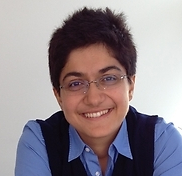
© Ridhi Kashyap
Ridhi Kashyap is Associate Professor of Social Demography and Fellow of Nuffield College at the University of Oxford. Her work spans different topics in demography and sociology, including gender, mortality and health, marriage, and ethnicity and migration. She is interested in the use of computational innovations such as agent-based models and digital data. Ongoing projects examine how digital trace data can be leveraged to measure development and gender inequality indicators.
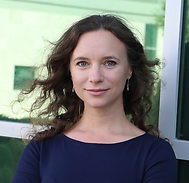
© Yelena Mejova
Yelena Mejova is a Research Leader at the ISI Foundation in Turin, Italy, a part of the Digital Epidemiology group (previously, a scientist at the Qatar Computing Research Institute, Qatar). Specializing in social media analysis and mining, her work concerns the quantification of health and wellbeing signals in social media, as well as tracking of social phenomena, including politics and news consumption.
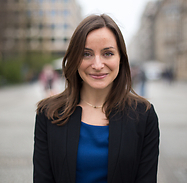
© Marzia Rango
Marzia Rango is Research and Data Officer at IOM’s Global Migration Data Analysis Centre, in Berlin. Her work focuses on issues pertaining to international migration data and research. She has conducted research and contributed to publications on a variety of topics including irregular migration to Europe, public attitudes towards migration, and the potential of new sources of migration data for the analysis of migration-related phenomena. She has also been involved in capacity-building projects on migration data collection, analysis and management in developing countries.

© Thomas Soehl
Thomas Soehl is Assistant Professor of Sociology at McGill University and holds the Canada Research Chair in International Migration. His recent research examines the socio-political attachments of migrants and the inter-generational transmission of cultural practices in migrant families. His book “Origins and Destinations: The Making of the Second Generation” is forthcoming from Russell Sage Foundation in October of 2018.
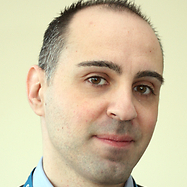
© Alessandro Sorichetta
Alessandro Sorichetta is a Principal Research Fellow at the School of Geography and Environmental Science of the University of Southampton. Within the WorldPop Program, he leads the "Global High Resolution Population Denominators" project (which aims at producing global annual gridded population distribution datasets structured by gender and age groups) and all WorldPop migration modeling activities. In 2017, his article "Mapping internal connectivity through human migration in malaria endemic countries" won the 2016 IPUMS International Research Award, from the Minnesota Population Center.
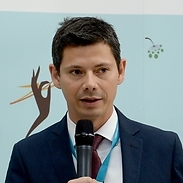
© Michel Vespe
Michele Vespe is a Scientific Officer at the European Commission - Joint Research Centre (JRC), where he works for the Knowledge Centre on Migration and Demography (KCMD). He coordinates the activities of a team of researchers in transforming migration data into knowledge and scientific evidence for policy makers. This includes research in the fields of data integration, big data and innovative data sources on migration. He also manages the developments of the KCMD Dynamic Data Hub, a platform that allows and facilitates online analysis and visualization of multiple data sets on migration.
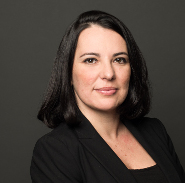
© Population Europe.eu Daniela Vono de Vilhelna
Daniela Vono de Vilhena is Research Scientist at the MPIDR since 2013 and works as scientific coordinator at the Secretariat of Population Europe in Berlin. She is currently the principal investigator of the project Undocumented migrants and irregular workers in Germany: policy challenges and approaches 1950-2019, financed by the Max Planck Society.
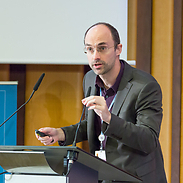
© Ingmar Weber
Ingmar Weber is the Research Director for Social Computing at the Qatar Computing Research Institute (QCRI). In his interdisciplinary research, he applies computational methods to large amounts of online data from social media and other sources to study human behavior at scale. Particular topics of interest include studying international migration using digital methods and monitoring digital gender gaps.
Acknowledgements
This workshop is organized by the Max Planck Institute for Demographic Research, in partnership with the IUSSP Panel on Big Data and Population Processes
If you would like to attend the symposium, please register by October 12 at the latest by sending an e-mail to Annett Döpke (sekzagheni@demogr.mpg.de).
Participants are expected to make their own travel and hotel reservations and to cover these costs. For directions to the MPIDR please visit: Directions to MPIDR